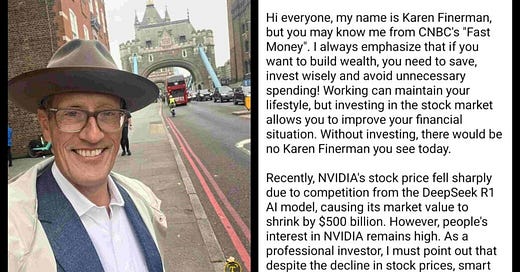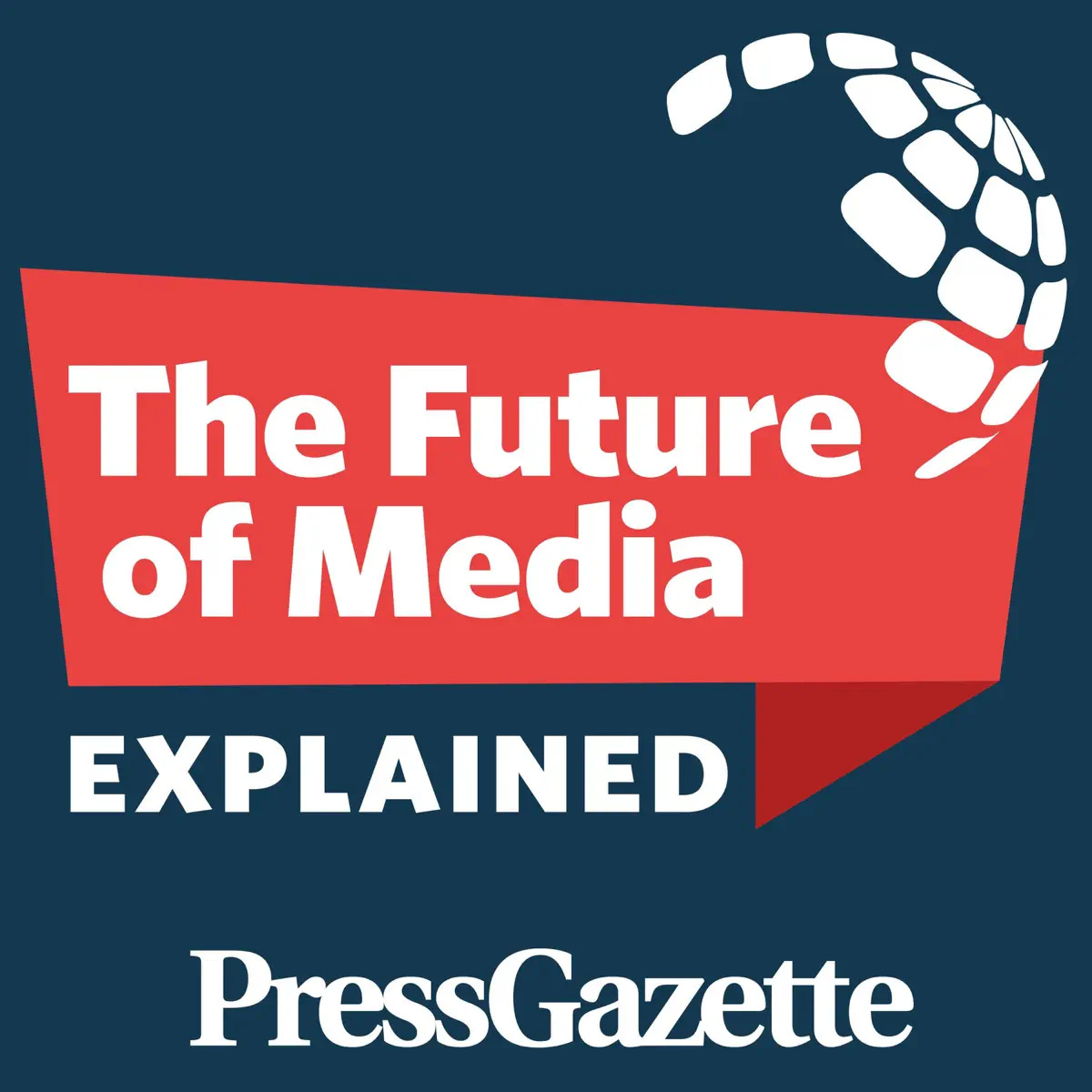Meta profits from journalist impersonations | Independent AI service 'works commercially'
Plus Axate CEO argues the value of Google to publishers has been less than zero and the acting director of the Reuters Institute has some "tough love" for the news industry
Facebook changed its name to Meta because it envisioned the web becoming a virtual version of reality available in 3D.
But anyone who has spent much time on the still ubiquitous social platform will notice that it is becoming not merely virtual, but largely imaginary, increasingly populated by AI-generated content.
CNN news anchor Richard Quest and CNBC financial commentator Karen Finerman have both been victims of a scam whereby fake Facebook profiles have been created to trade on their trusted names and gain sign ups for dubious investment schemes.
While the Richard Quest page has been taken down, other fake promotions have continued and Facebook continues to take ad revenue from the fraudsters.
For my money the Bulletin homepage and its AI-written summaries are a bit devoid of the, erm, human factor that makes journalism interesting.
Independent UK editor Chloe Hubbard said Bulletin stories have been surfacing on Google Discover, suggesting it may (at present) be working as a form of super-charged SEO for the Independent’s journalism. But it is an interesting first step on the road to using AI to provide extra oomph to human-created content.
Google claims that news is worth nothing to it in revenue terms.
The search giant delivers billions of page views to publishers and also distributes hundreds of millions in actual cash via Google News Showcase and other secret deals.
But looking at the bigger picture, it is the biggest player in an online advertising ecosystem which has seen it gain billions in ad revenue while publishers have lost billions.
And in our final report from the Society of Editors conference, the interim chief of the Reuters Institute administers some “tough love” to publishers, warning that we have “lost our way” with audiences.
On Press Gazette
Richard Quest scam investment site on Facebook. Montage: Press Gazette
Facebook profits from scam investment site using name of CNN anchor Richard Quest
“[Quest] is too busy at work now. When he is free, he will join the group to communicate with everyone, and when we hold an offline signing meeting in the future, he will also come to the scene to communicate with everyone 🤗.”
Independent says readers ‘often prefer’ stories on new AI ‘Bulletin’ to human-written versions
CEO Christian Broughton dismissed any suggestion Bulletin might be used to reduce journalist numbers, saying: “If we just reduced down we’d kill The Independent. The Independent is only on a growth agenda.”
Comment: Perhaps Google is really worth nothing to the news industry
“The era of Google’s dominance in search and advertising hasn’t been one in which the news sector has thrived. In fact, it has coincided with a calamitous collapse in revenues and a dramatic contraction of the industry overall.”
‘Tough love’: Reuters Institute chief says news industry has ‘lost way’ with audiences
“The fundamental problem here is: the news, or the news industry, misses its audiences, but the audience doesn’t miss the news.”
Also this week on Press Gazette
Rachel Sylvester named Observer political editor as around half staff leave title
Telegraph takes down Stop Funding Hate article after legal threat
Vox sees boom in paying readers for explainer journalism under Trump 2
Guido Fawkes owner Paul Staines pays £75,000 libel case costs to Dale Vince
Mirror editor says newsroom ‘coming along on journey’ with page-view targets
Guardian journalist checked Noel Clarke allegations ‘again and again’
Latest podcast: Jim Mullen's legacy at Reach | Value of news to Google | Sun losses, Times profits
Press Gazette's editorial team share their insights into big stories from the world of news. Charlotte Tobitt talks us through the latest News UK accounts, which show losses at The Sun shrank in the year to June 2024 while The Times reported a £60m profit.
We react to news that Jim Mullen, the divisive CEO at Reach, is stepping down. And Bron Maher looks at the arguments and counterarguments being made by publishers and Google over what news is really worth on its platforms.





